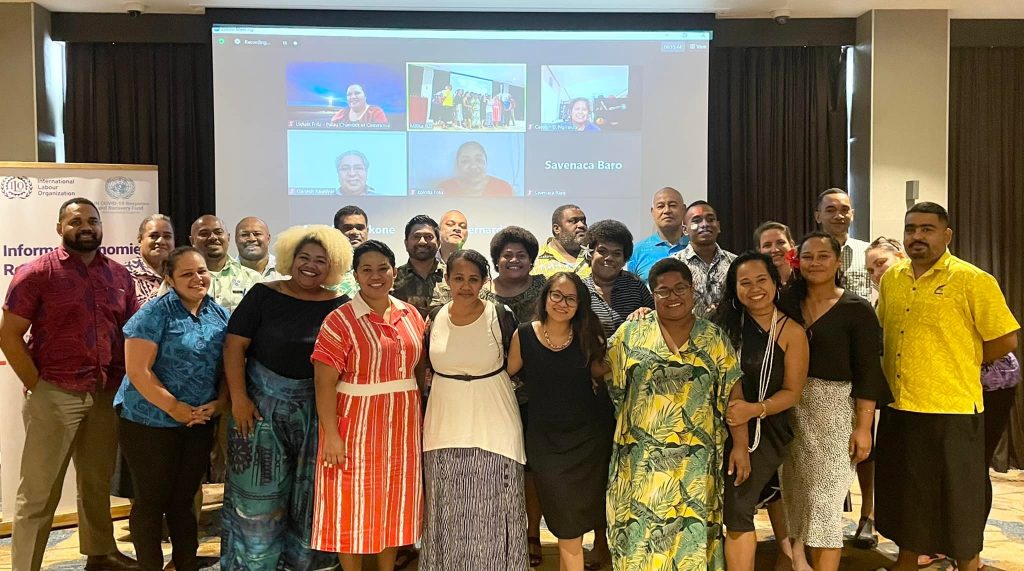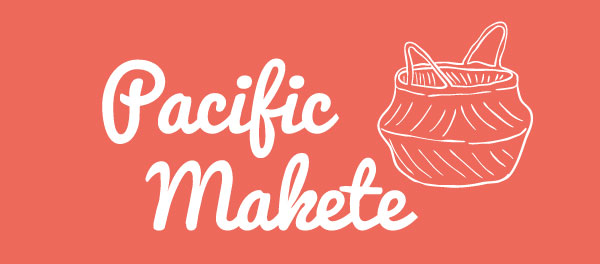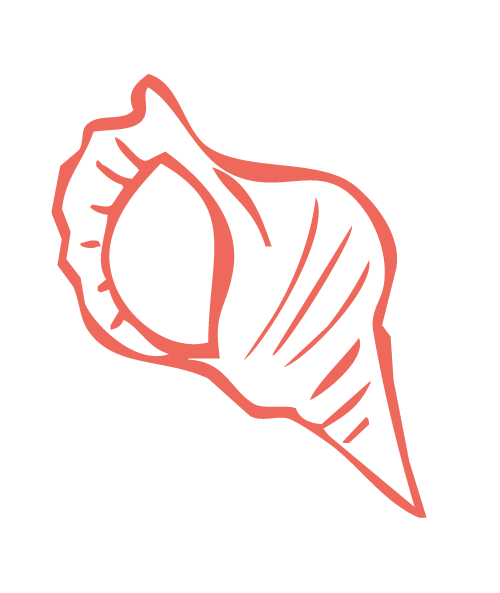ILO’s Informal Economies Recovery Project reflections

By Kite Pareti
That our fellow citizens working in the informal economy were amongst those most affected by the COVID-19 crisis is well known.
An International Labour Organisation report released last year showed that COVID-19 impacted 1.6 billion people of some 2 billion informal workers globally. In Fiji, it was about 66%, according to ILO data.
Director of the International Labour Organization (ILO) for Pacific island countries, Martin Karimli said the ILO worked with other UN agencies to measure the impact through rapid assessments as the pandemic started to bite. The assessments found, “that young people and women are among the most affected people and most vulnerable to job losses”.
“A lot of people have left the formal sector to [join] the informal sector. Some people went to the villages and engaged in agricultural activities,” he observed.
In response to these findings, the ILO established a US$1.5 million Informal Economies Recovery (IER) Project in Oct 2020, “designed to address the needs of those in the informal sector, with an objective to make sure that those who transition to the informal sector can have improved employment, access to social security, and make their businesses sustainable. That was the key rationale,” Karimli said.
So what difference has it made?
The ILO has since organised numerous consultations with representatives from small medium enterprises (MSME), in cooperation with government ministries in Fiji, Tonga, Palau, and Vanuatu.
A key component was to work with organisations representing informal workers in the creative and agricultural sector, who can speak with one voice and also raise the issues at the policy level, Karimli said.
The signing of a Memorandum of Understanding (MoU) between the Fiji Islands Dance Association (FIDA) and Viti Association of Visual Arts (VAVA) and the Fiji Commerce and Employers Federation (FCEF) in November 2021 has since strengthened the effectiveness and sustainability of the two creative associations.
“This partnership model can be considered a best practice for the region, as it provides creative associations and their members (who own micro enterprises), to access relevant national level resources to sustain their associations”, said Edward Bernard, Project Coordinator for the UN joint project.
ILO has a considerable pool of business development providers (BDP) and trainers on business continuity plans that ensure informal businesses can sustain themselves and get additional services. “This is how we will make sure that this impact is sustained, in addition to empowering the service providers, and creating businesses and representative organisations,” Karimli said.
Some examples of ILO’s partners are:
–Greenhouse Coworking, funded by the UN joint project, provides training and consultation to Fiji-based MSMEs.
-Employment Vanuatu, a UN-funded digital startup with over 1,000 registered people, bringing together job creators, job providers and job seekers to improve employment opportunities for women and youths across Vanuatu.
-Palau’s Chamber of Commerce has held a series of ten workshops on business-related topics with creative-preneurs, in collaboration with ILO.
-Tonga’s government, supported by the UN joint project, provided TOP$3.2 million (approx. US$1.4 million) in financial grants to COVID affected informal businesses. Over 6,800 applications were received from across all islands of Tonga, mostly from women in the handicraft industry.
Karimli stated that it is really important for ILO and other agencies involved to be able to translate various global policy level issues into small, measurable and efficient actions.
“I’m glad that this particular project is actually based on the evidence provided by the Pacific countries. It serves their interests and at the end of the day, it will actually bring some tangible results that will be sustainable, because the skills will be here and there will be consistency in the skills transfer provided by the Pacific service providers,” says Karimli.
“We cannot measure our success by the number of conferences or seminars, or even by the number of people who attend participant training courses. But the success would actually depend on how many people we can actually help so that they can have a change in their lives.”
Digital tools were also part of the design. “We also wanted to make sure that digital platforms are available and easy to use for those people in the informal sector…so that they can actually access social security. Whatever we are currently doing under this project, it actually is complemented by the policy level actions we undertake, which are not necessarily part of the project.
“We are engaged with our constituents — government, workers, and employers across Pacific countries, when designing new national employment policies which are resilient and also plan for job rich recovery. This process is undergoing. Now we have organised, for example, a national employment policy seminar in Tonga, we had another one in Fiji. We also need to make sure that, for example, disaster resilience and preparedness is properly integrated. Disability inclusion and women empowerment are part of these policy documents.”
Speaking with Pacific Makete, Director Karimli recalled meeting a participant from the Pacific Disability Forum who attended ILO’s Start and Improve Your Business training a few years ago. “The participant told me how it has changed her life. She also shared stories of other people with disabilities who are engaged in small business but needed training and support and I was really touched,” he said.
“This is how we measure impact. Seeing people benefit, and after years, they share their good memories and say that this is useful, please continue, and we are encouraged to do more.
The Informal Economies Recovery Project is a UN joint project funded by the UN Secretary General’s COVID Multi-Trust Partnership Fund (MPTF), jointly implemented by ILO, UNESCO, UNDP, IFAD in four Pacific Island countries and areas from October 2020-March 2022.

